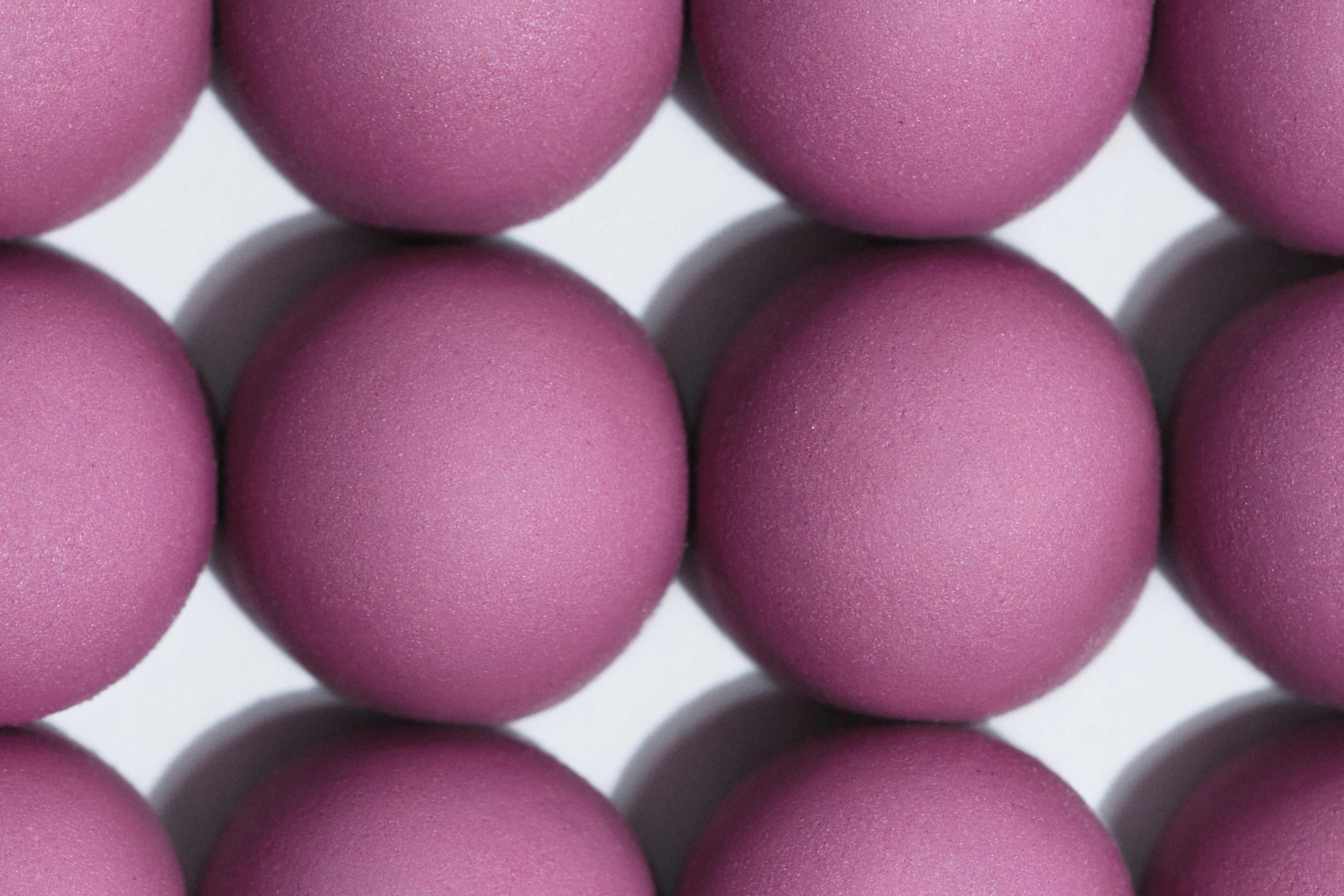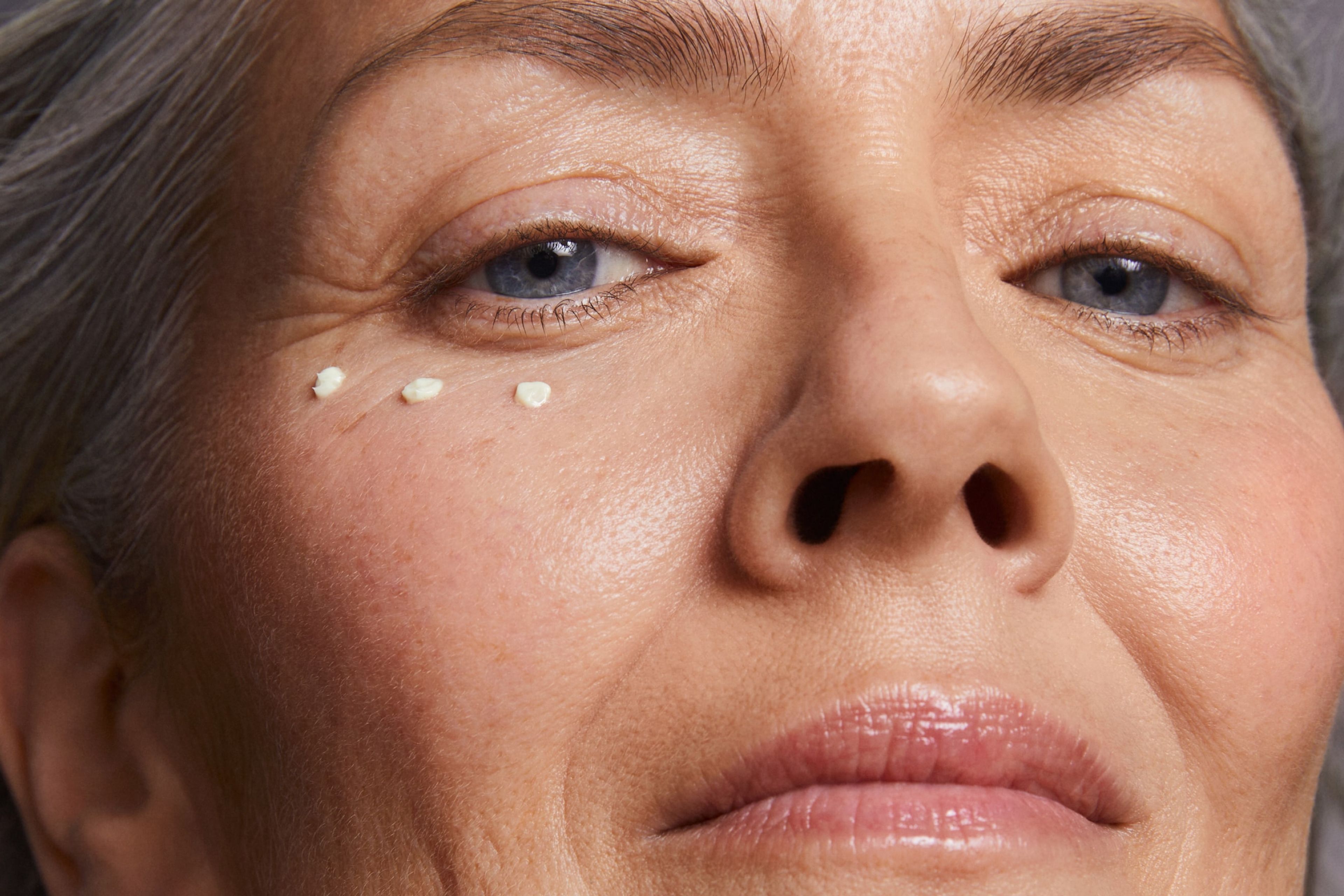The Use of Peptides in Longevity Skincare
Learn how different peptides get under your skin to combat aging and discover synergistic ingredients for optimal results.
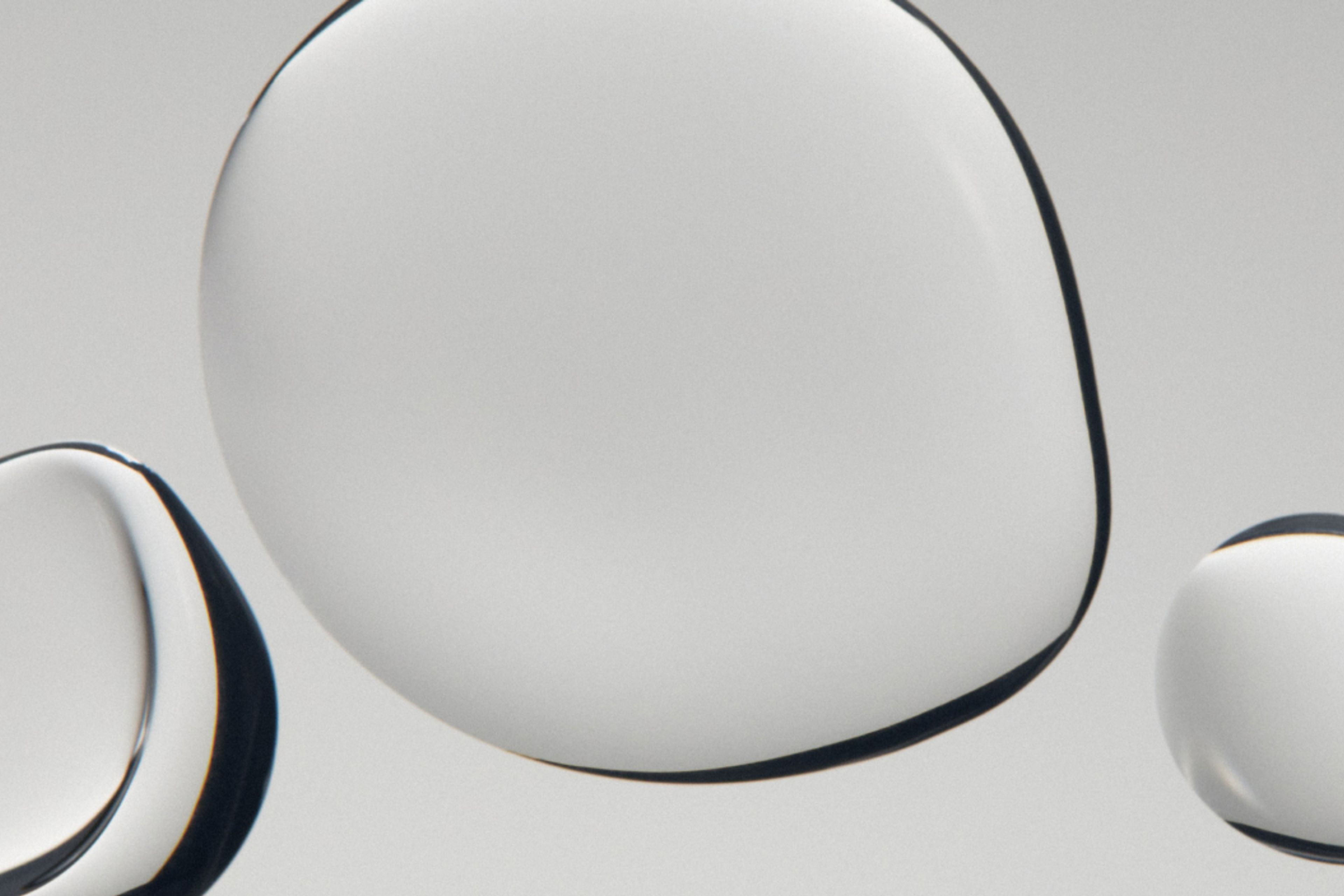
What to know
Longevity-focused skincare targets the underlying hallmarks of aging.
Oxidative stress is a major driver of skin aging, leading to collagen depletion, glycation, and reduced cellular energy production.
Peptides play a crucial role in skin longevity by supporting collagen synthesis, promoting cellular regeneration, and maintaining structural integrity.
Different types of peptides—like signal peptides, enzyme-inhibiting peptides, and neuropeptides—offer targeted benefits.
Peptides provide the building blocks of collagen, while Mitopure promotes the cellular energy required for collagen synthesis.
Traditionally, “anti-aging” skincare promised us eternally youthful skin but rarely delivered genuine results. In fact, many of these formulations contained harmful, damaging ingredients.
Focusing on skin longevity, as opposed to surface-level changes, shifts the perspective. Grounded in empirical data, longevity skincare targets the biological changes that occur with age. This includes preserving structural integrity, shielding cells from oxidative stress, promoting cellular energy, and more.
Peptides, with their versatile properties, are key players in the realm of skin longevity. That's why the Timeline Skincare Line includes peptides to compliment our breakthrough skin longevity compound, Mitopure®. Read all about Mitopure’s incredible skin benefits here.
What Are Peptides and How Do They Work?
Peptides are short chains of amino acids that act as the building blocks for proteins such as collagen, elastin, and keratin—essential for skin structure and resilience.
One of the key benefits of peptides in skincare is their small size. Unlike proteins (e.g., collagen), peptides are small enough to penetrate the skin barrier. This ability allows them to activate cellular regeneration, repair, and protein synthesis from deep within the skin, making peptides a favorite for skincare enthusiasts and biohackers alike.
Different Types of Peptides and Their Role in Skin Longevity
Peptides are not one-size-fits-all; different peptides offer unique benefits based on their molecular structure and function. These include signal peptides, carrier peptides, enzyme-inhibiting peptides, and neuropeptides.
Carrier Peptides: Delivering Trace Elements
Carrier peptides transport trace elements such as copper or manganese to the skin. These trace elements are critical for wound healing. Clinical research has found that GHK-Cu, a small copper peptide, can even increase the production of growth factors and the activity of antioxidant enzymes.[1]
Enzyme-Inhibiting Peptides: Slowing Collagen Breakdown
As their name suggests, these peptides inhibit the enzymes that break down collagen and elastin. These peptides target specific enzymes, such as matrix metalloproteinases (MMPs), which degrade the skin’s structural proteins over time.[2]
UV exposure and skin inflammation can induce the expression of MMPs; wear a mineral or chemical SPF to protect your skin from premature aging.
Neurotransmitter Inhibitor Peptides: Expression-Softening Effects
Neuropeptides are primarily known for their ability to target expression lines for cosmetic benefits. Like botox, they inhibit the release of neurotransmitters, which reduces muscle contractions and the fine lines from facial expressions.[3]
While neuropeptides can mildly soften expression lines, these benefits are often temporary.
FYI: If you notice a deepening in fine lines during the winter months, you may just have dehydrated skin! It may be time to pick out your winter skincare routine.
Signal Peptides: Boosting Collagen and Elastin Production
Signal peptides are perhaps the most critical for skin longevity. These peptides act as messengers, stimulating cells to produce essential proteins like collagen and sugars like glycosaminoglycans (GAGs).[4]
Palmitoyl Tripeptide-1 and Palmitoyl Tetrapeptide-7 are two effective and complementary signal peptides. They have been shown to boost collagen synthesis, improve skin firmness, and support the extracellular matrix. Due to their efficacy, both these longevity-supporting peptides are included in the Timeline Skin Health line.

The Serum
Bestseller4.6 · 131 reviews
Lifts the skin. Powered by Mitopure®
By targeting the underlying structural components of the skin, signal peptides can enhance skin resilience and reduce visible signs of aging.
Bioactive Vegan Peptides: Harnessing Nature’s Power
Bioactive ingredients actively interact with biological processes in the skin. This means the ingredient directly triggers a physiological response at a cellular level, leading to benefits like increased collagen production, improved hydration, or enhanced antioxidant defenses.
Plant-based peptides are eco-friendly, easily recognized by the skin, and offer a natural alternative to synthetic peptides while delivering potent benefits.
True Longevity Starts With Cellular Energy
While peptides are the ingredients in protein formation, molecular construction requires energy.
Mitochondria are the powerhouses of our cells, responsible for producing cellular energy. Every repair process, protein synthesis, and skin regeneration effort depends on sufficient energy generated from these structures.
As cells accumulate oxidative stress, mitochondrial function begins to decline. This dysfunction not only generates more oxidative stress but also reduces energy production within the cell. Without energy, the skin struggles to efficiently synthesize and organize essential proteins.[5]
Combining Peptides with Mitopure for Lasting Skin Longevity
Mitopure, the clinically validated Urolithin A molecule, addresses the critical interplay between mitochondrial function and skin vitality. Urolithin A targets longevity pathways by triggering a cellular renewal process called mitophagy. This process allows cells to renew their mitochondrial network, restoring optimal energy production.
Mitopure is the first bioactive clinically proven to re-energize cells. Furthermore, clinical studies observed that Mitopure upregulates genes associated with collagen organization and assembly.[6]
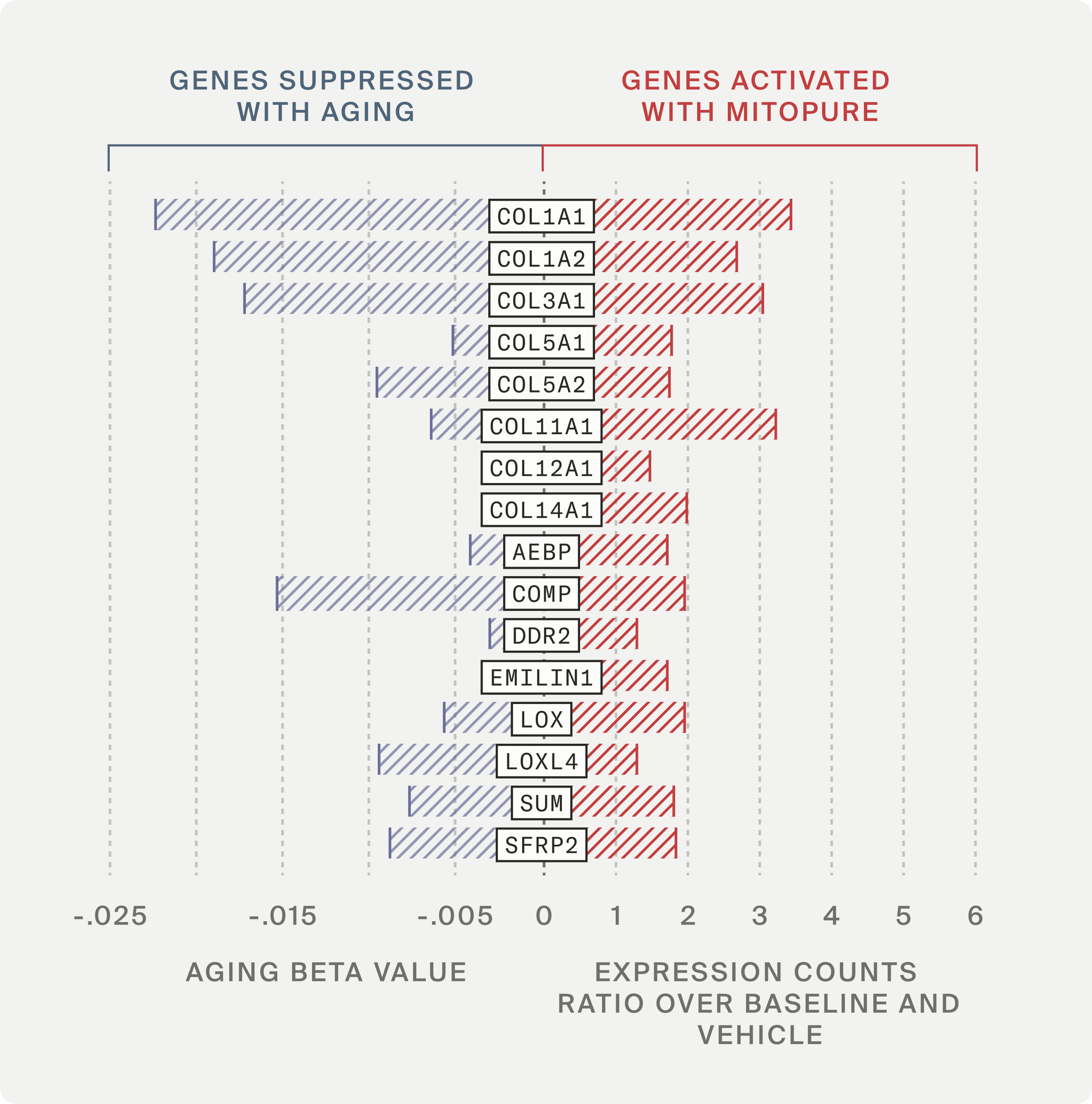
Mitopure was even found to protect against photodamage, the main contributor to skin aging.[7]
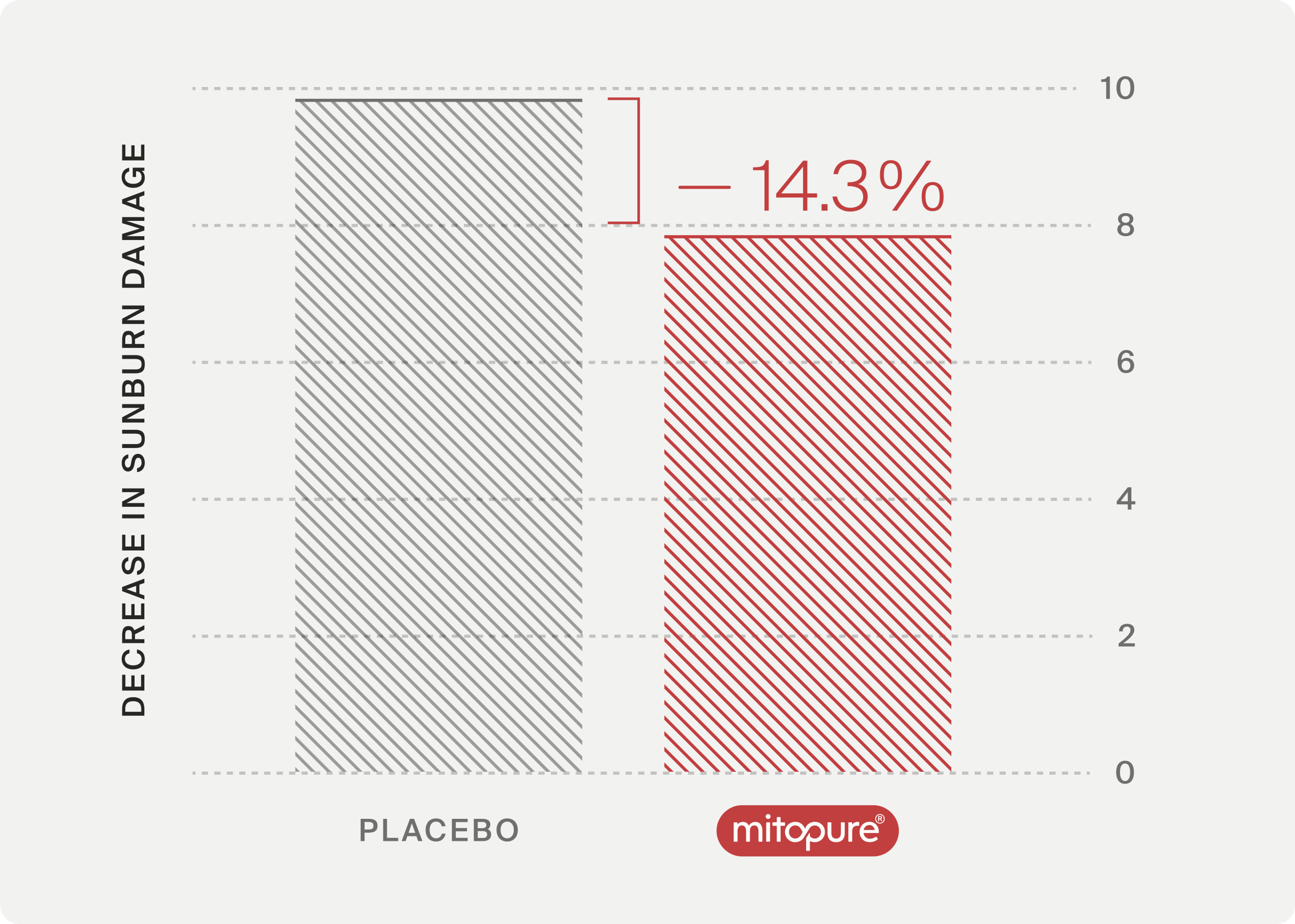
For true skin longevity, ingredients like peptides should be combined with cellular energy enhancers like Mitopure.
Peptides provide the building blocks necessary for collagen synthesis, while Mitopure supplies the energy required for these processes to occur efficiently. That’s why the Timeline Skin Health Line includes powerful signaling peptides, vegan plant-based peptides, with Mitopure to form the ultimate longevity cocktail!

The Day Cream
4.6 · 93 reviews
Redensifies the skin's appearance. Powered by Mitopure®
Authors

Freelance writer

Reviewed by
Senior Manager of Nutrition Affairs
References
- ↑
Pickart, L. (2008). The human tri-peptide GHK and tissue remodeling. Journal of Biomaterials Science, Polymer Edition, 19, 969 - 988. https://doi.org/10.1163/156856208784909435.
- ↑
Gorouhi, F., & Maibach, H. I. (2009). Role of topical peptides in preventing or treating aged skin. International journal of cosmetic science, 31(5), 327–345.
- ↑
Gorouhi, F., & Maibach, H. I. (2009). Role of topical peptides in preventing or treating aged skin. International journal of cosmetic science, 31(5), 327–345. https://doi.org/10.1111/j.1468-2494.2009.00490.x (https://doi.org/10.1111/j.1468-2494.2009.00490.x)
- ↑
Gorouhi, F., & Maibach, H. I. (2009). Role of topical peptides in preventing or treating aged skin. International journal of cosmetic science, 31(5), 327–345.
- ↑
Martic I, Papaccio F, Bellei B, Cavinato M. Mitochondrial dynamics and metabolism across skin cells: implications for skin homeostasis and aging. Front Physiol. 2023 Nov 15;14:1284410. doi: 10.3389/fphys.2023.1284410. PMID: 38046945; PMCID: PMC10693346.
- ↑
D’Amico, D., Fouassier, A., Faitg, J., Hennighausen, N., Brandt, M., Konstantopoulos, D., Rinsch, C., & Singh, A. (2023b, January 1). Topical application of urolithin a slows intrinsic skin aging and protects from UVB-mediated photodamage: Findings from Randomized Clinical Trials. medRxiv.
- ↑
D’Amico, D., Fouassier, A., Faitg, J., Hennighausen, N., Brandt, M., Konstantopoulos, D., Rinsch, C., & Singh, A. (2023b, January 1). Topical application of urolithin a slows intrinsic skin aging and protects from UVB-mediated photodamage: Findings from Randomized Clinical Trials. medRxiv. https://www.medrxiv.org/content/10.1101/2023.06.16.23291378v1.full (https://www.medrxiv.org/content/10.1101/2023.06.16.23291378v1.full)

•
Skincare•
The Eye Cream: Clinically Proven, Cellularly Powered

•
Skincare•






